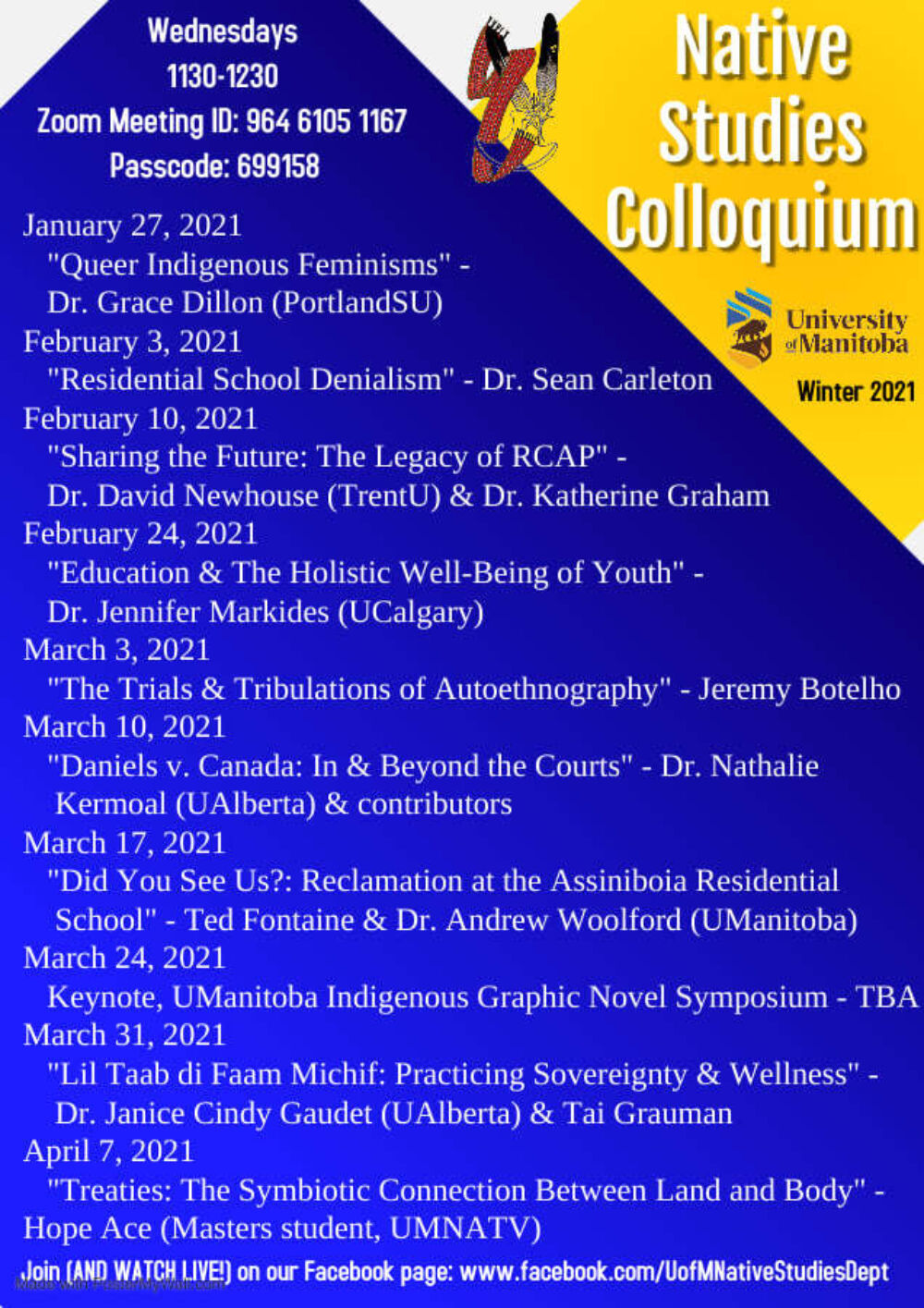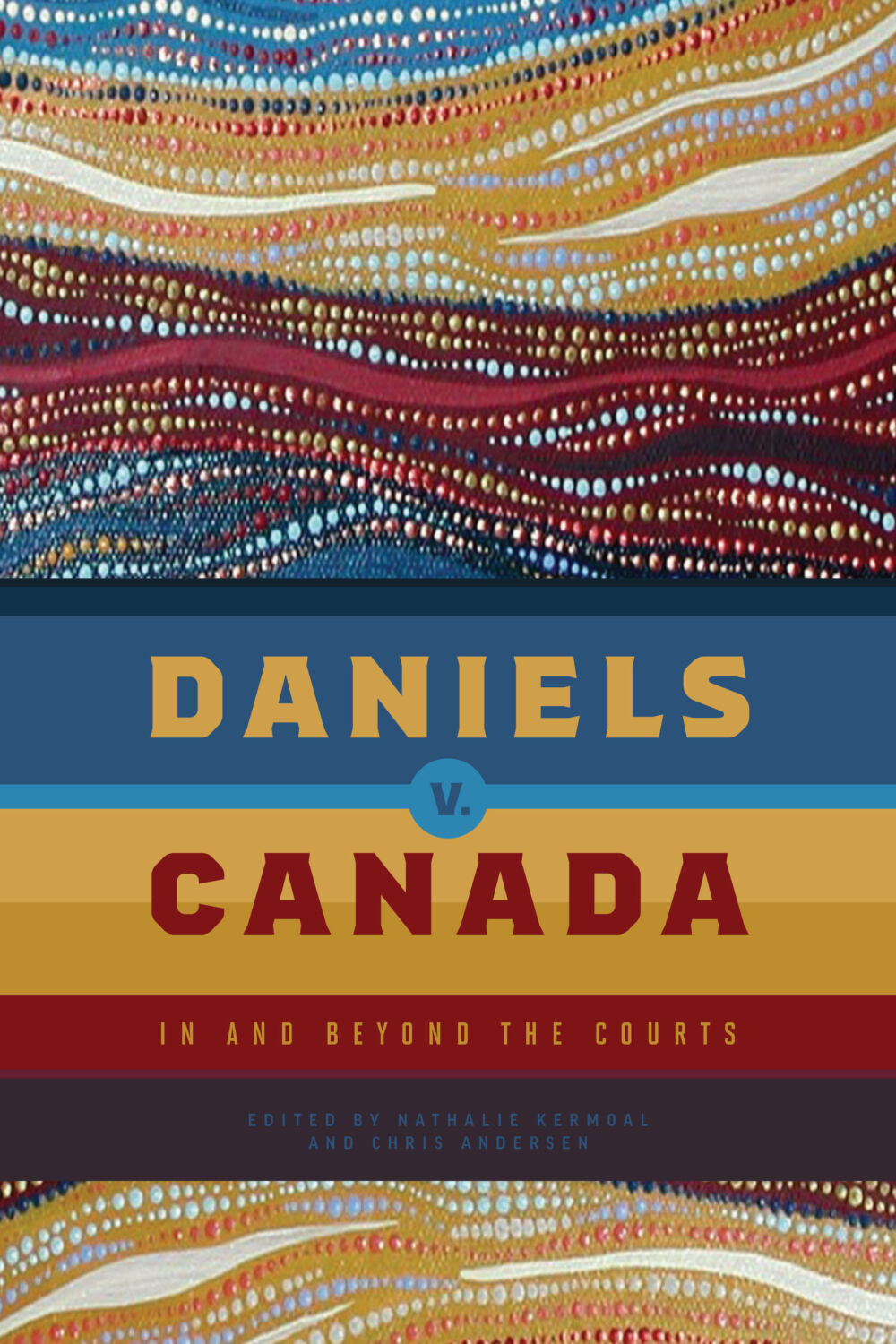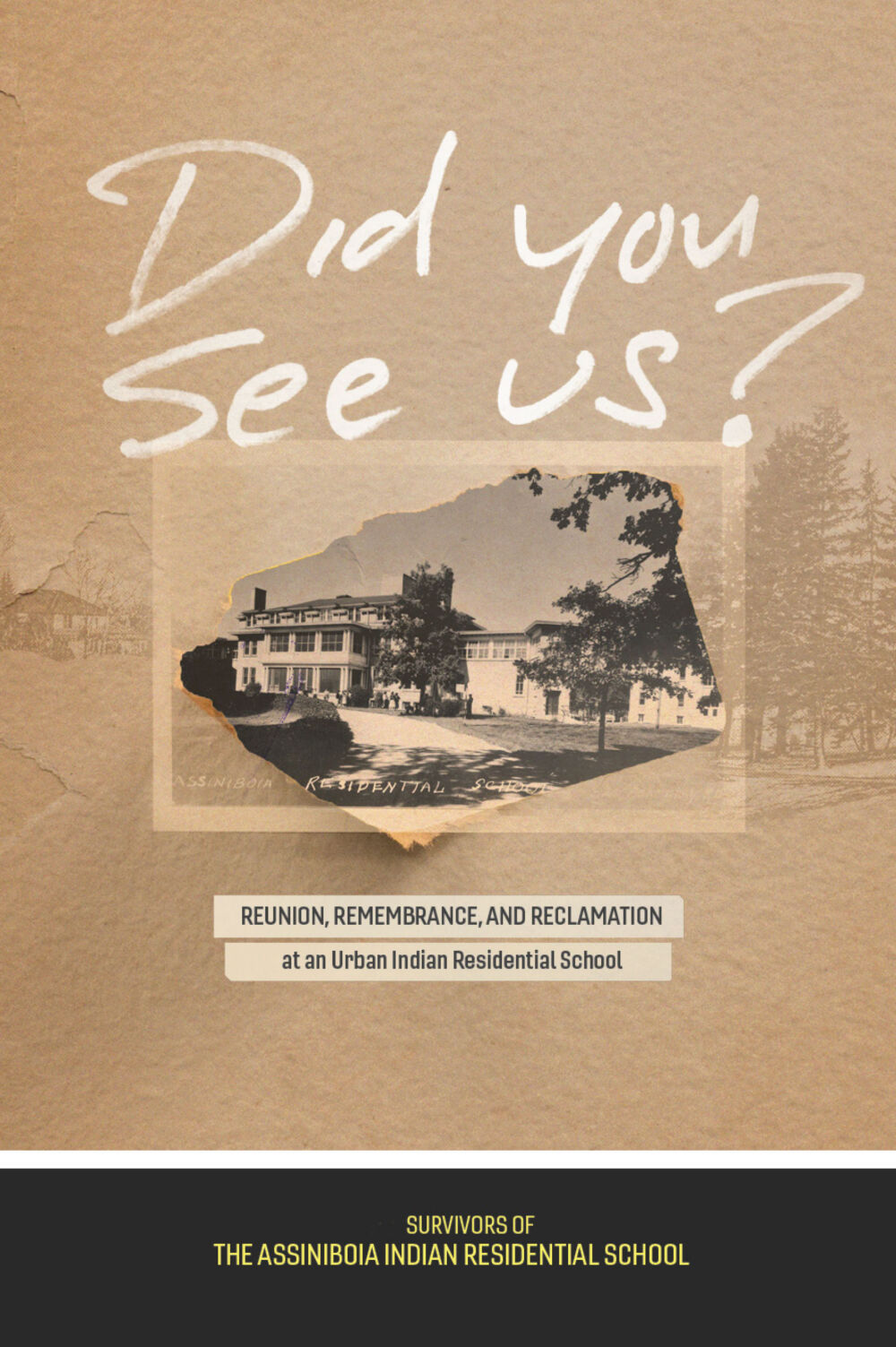
Three of our Spring 2021 books are being featured at this year’s Winter Colloquium with the Department of Native Studies at the University of Manitoba!
Come join the weekly UMNATV colloquium panel discussing and visiting with some of the best speakers, leaders, and researchers in Indigenous Studies on Turtle Island!
These events are FREE and open to the public via Facebook Live or Zoom, Wednesdays from 11:30am – 12:30pm.
February 10th
Sharing the Land, Sharing a Future: The Legacy of the Royal Commission on Aboriginal Peoples

A panel discussion with editors Dr. Katherine Graham & Dr. David Newhouse
Bios:
Dr. David Newhouse is Professor of Indigenous Studies and Director of the Chanie Wenjack School for Indigenous Studies at Trent University. He was a member of the policy team on economics for the Royal Commission on Aboriginal Peoples.
Dr. Katherine A.H. Graham has been an active scholar on Indigenous and Northern issues for over four decades. She served in several senior research and policy roles with the Royal Commission on Aboriginal Peoples.
(If you missed this talk you can watch the recorded video here.)
_______________________________________________________________________
March 10th
Daniels v. Canada: In and Beyond the Courts

A panel discussion with editor Dr. Nathalie Kermoal & contributor Jason Madden
This book analyzes the impact of the case Daniels v. Canada at the Supreme Court, which determined that Métis and non-status Indians were “Indians” under section 91(24) of the Constitution Act, 1867. This represented an important court victory that has powerfully shaped Métis relationships with the federal government and continues to reverberate far beyond its immediate policy implications. Bringing together scholars and practitioners from a wide array of professional contexts, this volume demonstrates the power of Supreme Court of Canada cases to directly and indirectly shape our conversations about and conceptions of what Indigeneity is, what its boundaries are, and what Canadians believe Indigenous peoples are “owed.”
Bios:
Dr. Nathalie Kermoal is a proud Breton (a people located on the West coast of France), a professor and the Director of the Rupertsland Center for Métis Research in the Faculty of Native Studies at the University of Alberta. She holds a PhD in History from the University of Ottawa. She has published five books (among them Living on the Land: Indigenous Women Understanding of Place co-edited with Isabel Altamirano-Jimenez, Athabasca University Press) and numerous articles in academic journals and collective volumes. Her areas of research interests are Métis studies, urban Indigenous history, and Indigenous Women’s Issues. Since 2009, Nathalie is the Associate-Dean Academic of the Faculty of Native Studies.
Jason Madden is a citizen of the Métis Nation and a descendant of the ‘Halfbreeds of Rainy Lake and River’ who collectively adhered to Treaty No. 3 in 1875. He is managing partner of the law firm Pape Salter Teillet LLP and is called to the bar in Ontario, Manitoba, Alberta, the Yukon and the Northwest Territories. He has been involved much of the Métis rights litigation advanced from Ontario westward over the last 15 years, including acting as counsel in Métis harvesting rights cases such as R. v. Goodon, R. v. Laviolette, R. v. Belhumeur, R. v. Hirsekorn. In the Daniels case, he acted as counsel for the interveners Manitoba Métis Federation before the Federal Court of Appeal and for the Métis National Council before the Supreme Court of Canada.
______________________________________________________________________
March 17th
Did You See Us?: Reunion, Remembrance, and Reclamation at an Urban Indian Residential School

The Assiniboia school is unique within Canada’s Indian Residential School system. It was the first residential high school in Manitoba and one of the only residential schools in Canada to be located in a large urban setting. Operating between 1958 and 1973 in a period when the residential school system was in decline, it produced several future leaders, artists, educators, knowledge keepers, and other notable figures. It was in many ways an experiment within the broader destructive framework of Canadian residential schools. Stitching together memories of arrival at, day-to-day life within, and departure from the school with a socio-historical reconstruction of the school and its position in both Winnipeg and the larger residential school system, Did You See Us? offers a glimpse of Assiniboia that is not available in the archival records. It connects readers with a specific residential school and illustrates that residential schools were often complex spaces where forced assimilation and Indigenous resilience co-existed.
Bios:
Ted Fontaine is an author and a representative of The Assiniboia Residential School Legacy Group, a non-profit organization with a mandate to: honour the legacy of the Assiniboia Residential School through commemorative and educational activities; promote positive and reconciliatory relationships between Indigenous and non-Indigenous people; foster awareness, understanding, and healing; feature culture and language as interpreted and presented by the Survivors of the Residential School.
Dr. Andrew Woolford is a professor of sociology at the University of Manitoba and the author of This Benevolent Experiment: Indigenous Boarding Schools, Genocide, and Redress in the United States and Canada.
______________________________________________________________________
Watch on ZOOM or online on our Facebook page: www.facebook.com/UofMNativeStudiesDept
Zoom Meeting ID: 964 6105 1167
Passcode: 699158
For more information contact UMNATV Colloquium coordinator Niigaan Sinclair at [email protected]
Posted by U of M Press
February 22, 2021
Categorized as Events
Tagged aboriginal, community, history, indigenous, manitoba, nativestudies
Marsha Knight, Narrator of A Two-Spirit Journey Three UMP Books Reviewed in the Canadian Journal Of Native Studies!
